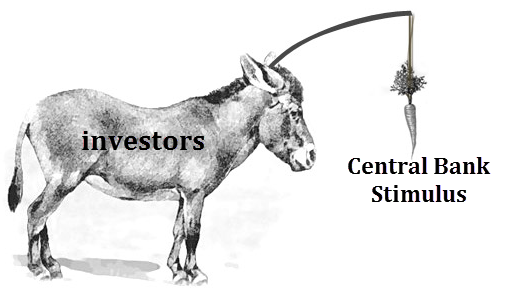 You can be free. You can live and work anywhere in the world. You can be independent from routine and not answer to anybody. This is the life of a successful trader. Many aspire to this but few succeed. An amateur looks at a quote screen and sees millions of dollars sparkle in front of his face. He reaches for the money – and loses. He reaches again – and loses more. Traders lose because the game is hard, or out of ignorance, or lack of discipline or because of both. – ALEXANDER ELDER
You can be free. You can live and work anywhere in the world. You can be independent from routine and not answer to anybody. This is the life of a successful trader. Many aspire to this but few succeed. An amateur looks at a quote screen and sees millions of dollars sparkle in front of his face. He reaches for the money – and loses. He reaches again – and loses more. Traders lose because the game is hard, or out of ignorance, or lack of discipline or because of both. – ALEXANDER ELDER
Every winner needs to master three essential components of trading; a sound individual psychology, a logical trading system and good money management. These essentials are like three legs of a stool – remove one and the stool will fall, together with the person who sits on it. Losers try to build a stool with only one leg, or two at the most. They usually focus exclusively on trading systems. Your trades must be based on clearly defined rules. You have to analyze your feelings as you trade, to make sure that your decisions are intellectually sound. You have to structure your money management so that no string of losses can kick you out of the game. – ALEXANDER ELDER
Markets offer unlimited opportunities for self-sabotage, as well as for self-fulfillment. Acting out your internal conflicts in the marketplace is an expensive proposition. Traders who are not at peace with themselves often try to fulfill their contradictory wishes in their market. If you do not know where you are going, you will wind up somewhere you never wanted to be. You can succeed in trading only if you can handle it as a serious intellectual pursuit. Emotional trading is lethal. To help ensure success, practice defensive money management. A good trader watches his or her capital as successfully as a professional scuba-diver watches his or her air supply. – ALEXANDER ELDER







 “If you want to know everything about the market, go to the beach. Push and pull your hands with the waves. Some are bigger waves, some are smaller. But if you try to push the wave out when it’s coming in, it’ll never happen. The market is always right.”
“If you want to know everything about the market, go to the beach. Push and pull your hands with the waves. Some are bigger waves, some are smaller. But if you try to push the wave out when it’s coming in, it’ll never happen. The market is always right.”